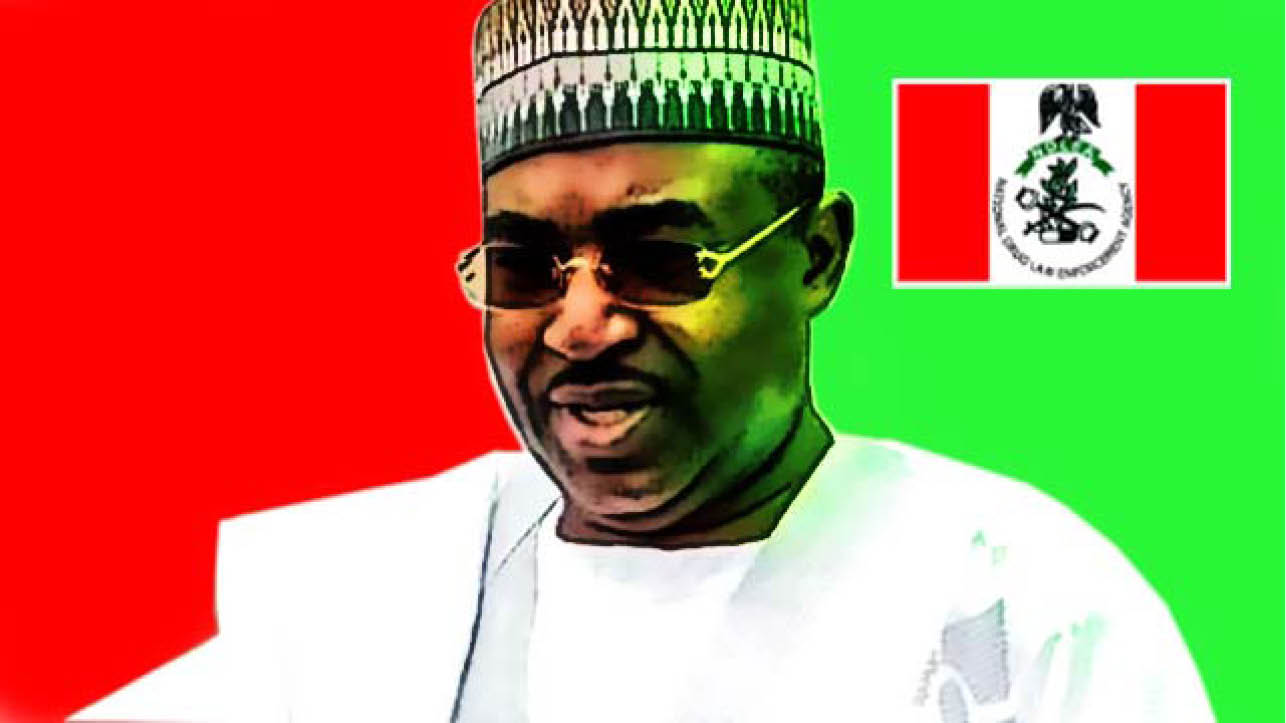In January 2021, President Muhammadu Buhari approved the appointment of the former military administrator of Lagos and Borno states, Brigadier General Mohammed Buba Marwa (rtd) as Chairman/CEO of the National Drug Law Enforcement Agency (NDLEA). Given his antecedent as a brave and intelligent military officer, his appointment was seen by those who knew him in his days as the military administrator of Lagos State as a square peg in a square hole. It would be recalled that former President Ibrahim Babangida established NDLEA in 1989 with a mandate for the agency to eliminate illicit drug trafficking and consumption in Nigeria.
With the devastating effect of drug and substance abuse on Nigeria’s youthful population, expectations among Nigerians are high for Marwa to bring his wealth of experience and professionalism to strengthen the fight against drug abuse and trafficking. The interception of 40 parcels of cocaine weighing 43.11kg with an estimated value of over N32 billion at the Tin Can Port in Lagos corroborates the argument that Marwa has, so far, not disappointed those who expected him to hit the ground running at NDLEA.
- Monguno’s Comment: Dasuki’s case ‘will be a child’s play when Buhari leaves office’
- Monguno’s Comment: Dasuki’s case ‘will be a child’s play when Buhari leaves office’
Soon after assuming office in his new national assignment at NDLEA, Marwa hinted that NDLEA would seek government’s approval to conduct drug tests on newly admitted students of tertiary institutions in the country as well as on security agencies’ fresh recruits and all newly appointed government employees. Explaining the nexus between drug abuse, crime and criminalities at a meeting in Abuja with state commanders of the agency, General Marwa stated that “the exponential growth of the nefarious drug activities can be directly linked to the upsurge in crimes such as insurgency, terrorism, kidnapping, cultism, political thuggery, gangsterism, rape and other maladaptation bedevilling today’s Nigeria.” More than 14.3 million Nigerians are said to be involved in drug or substance abuse.
Marwa described his mission at the NDLEA as “a moving train”; warning that nobody should dare stand in its front. “The train will crush any such person. To be forewarned is to be forearmed,” he cautioned. The riot act read by the new NDLEA boss reminds one of the days of General Musa Bamaiyi at the agency. Bamaiyi was one daredevil military officer who audaciously fought drug barons. Since Bamaiyi’s departure from the agency, NDLEA ceased to be in the news as much as was the case. Tackling a social menace as perilous and disastrous as drug abuse and trafficking requires the kind of crazy approach deployed by General Bamaiyi, which is the path Marwa is also treading and striving to revive. A man that intends to decisively deal with drug abuse must himself behave as if he were also an addict.
The general conduct among young boys and girls in public places today suggests how widespread drug abuse is as much as it also reveals how devastatingly drug and substance addiction has destroyed a very large population of Nigerian youths. Their manner of dressing, greeting, talking, eating, walking, etc, are generally abnormal. Indeed, the turbulent and nervous way they do so many things is far from that of a normal and sensible person. The reckless manner in which commercial motorcycle operators ride through the traffic validates the insinuation that drug and substance abuse has badly destroyed a good number of our youths. The wild manner most motorists, especially commercial cab and bus drivers, use Nigerian roads and highways rather depicts them as beasts sitting behind steering wheels.
I was recently held up in a traffic gridlock at Gwagwalada for about three hours. What transpired before my eyes between two commercial bus drivers in the gridlock, which was caused by the merging of traffic in to a single lane, is a strong testimony of the extent drug abuse has destroyed the psyche of Nigerian youths. As motorists were struggling to navigate the thick traffic, a commercial driver manoeuvred to the front of another, both of them driving Sharon Minibus. In a matter that did not require more than the one who manoeuvred to apologize and the offended to accept it, both of them alighted from their vehicles, went for their knives and charged to stab one another. I found the scenario incredible. In spite of interventions from other motorists and passengers, the young men brought the traffic to halt for more than one hour until armed soldiers arrived at the scene. It’s all a reflection of drug abuse.
This explains why we absolutely support Marwa’s move to seek legislation that will make it mandatory for students seeking admission into tertiary institutions, new recruits into the armed forcers and para-military services, as well as new employees (into the public or private sector) to undergo drug test. We appeal to lawmakers to hasten to complete all legislative processes that will give birth to this law. This law should provide that those who test positive to drug and substance use should lose their offers of admission, recruitment or employment as the case may be. Indeed, we encourage lawmakers to expand the scope of those to be subjected to the drug test to include everyone seeking political office (whether through election or by appointment) as well as seekers of traditional title or office. There’s nothing wrong if the same provision is made a requirement for the acquisition of driver’s license. This may help to reduce drug-addict population in the country.
Parents must also take their responsibility serious. They have a duty to monitor their children and nip their children’s bad habits in the bud. The failure of families to help their wards build positive characters contributes to what has become of youths in today’s Nigeria. We are worried because it’s today’s youths who should take charge of the country in due course. We do not wish to have a country led by drug addicts. The National Orientation Agency should collaborate with relevant stakeholders to carry out grassroots sensitization programmes to disabuse the minds of young men and women from drug and substance abuse. Religious, traditional and community leaders should be involved in the campaign against this terrible threat to the country’s future. May Allah (SWT) guide us to see the end of drug and hard substance abuse in the country, amin.

 Join Daily Trust WhatsApp Community For Quick Access To News and Happenings Around You.
Join Daily Trust WhatsApp Community For Quick Access To News and Happenings Around You.
